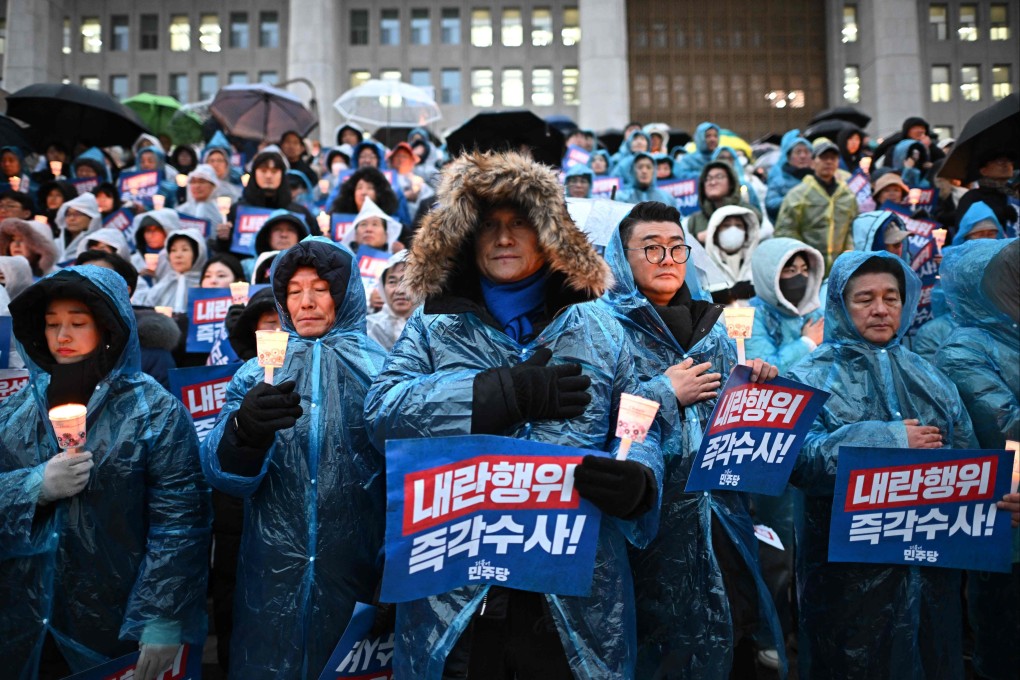Advertisement
Opinion | Korea instability should prompt US, China to put aside self-interests
Fresh geopolitical shifts underscore a need for leaders to transcend parochial interests and embrace a more holistic approach to governance
Reading Time:3 minutes
Why you can trust SCMP
4

The imposition of martial law in South Korea by President Yoon Suk-yeol was short-lived but the news reverberated globally, leaving many to ponder the depths of his political miscalculation. The move, which exacerbated his precarious position, is a stark reminder that leaders, regardless of their stature, are fallible. The gravest errors often stem from too intense a focus on self-serving interests at the expense of broader, more significant concerns.
Advertisement
US president-elect Donald Trump, known for his emotional and self-interested approach, attempted personal diplomacy with North Korean leader Kim Jong-un during his first term, an overture that ultimately failed. Now, South Korea’s Yoon has employed a conservative, nationalist tactic – only to see it backfire spectacularly.
This should prompt more level-headed people in positions of power to reflect on the narrow, parochial perspectives that dominate decision-making within nations.
Further complicating the geopolitical landscape is North Korea’s reported dispatch of troops to Russia to support Moscow’s efforts in Ukraine. This audacious move is by no means a footnote in international relations; it is a harbinger of shifting allegiances and a recalibration of power dynamics in Northeast Asia. It also represents a significant failure by the international community to manage major power relationships and traditional conflicts.
For decades, China has been North Korea’s indispensable patron. Yet, Kim’s latest overture to Russian President Vladimir Putin suggests a strategic pivot that diminishes Beijing’s influence. This development is a stark reminder that, in international politics, alliances are fluid and loyalty is often a matter of convenience. The implications are profound, signalling a potential realignment of regional alliances that could destabilise the delicate balance of power in Northeast Asia.
Advertisement
The United States, ever vigilant in safeguarding its hegemony, views North Korea’s involvement in Ukraine with palpable alarm. This escalation complicates the already fraught US-China relationship, as Washington is likely to intensify its demands on Beijing to rein in Pyongyang.

Advertisement
